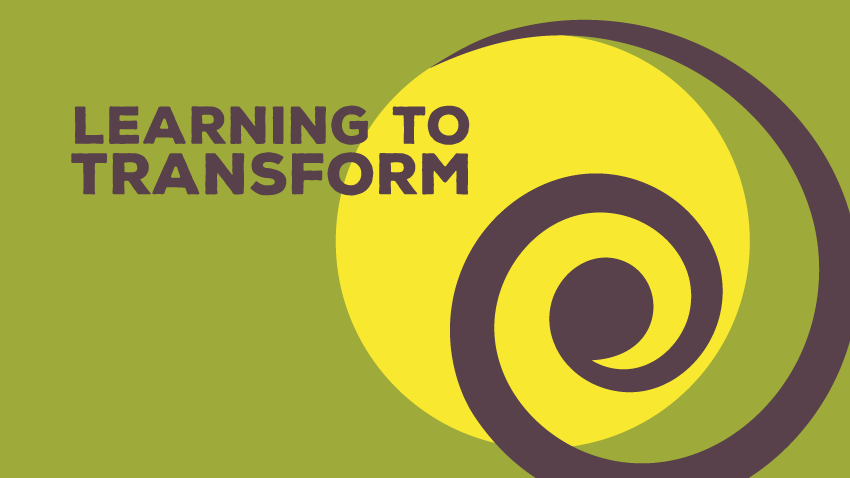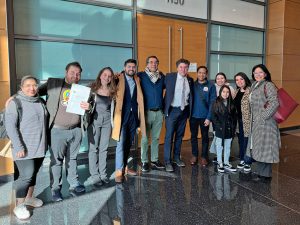It’s been two years since I co-founded Learning to Transform with Indira Garmendia from our dining room table.
Its name has been prophetic because these past two years have led to so much of my own learning and transformation.
It’s my wish to help trainers, educators, and facilitators create a fulfilling career and life dedicated to social change.
So I want to share some of what I’ve learned from the experience.
I hope it helps you in your journey.

1. Discover your “Yes” Criteria
Saying no is very difficult for me. I’ve learned to deal with this by instead focusing on the specific things I want to say yes to.
For example, I knew from the beginning that I didn’t want to do one-off workshops and that the projects I was interested in required both learning and application over time. Offers came my way from people I was interested in saying yes to, but they didn’t materialize because they weren’t ready to say yes to those things that were important to me.
As a result of focusing on my criteria for “yes” I’m much more fulfilled by the projects I get to work on (and their more impactful as a result).

2. Invest in Yourself Early and Often
Starting a consulting practice would have been impossible if I hadn’t learned from other people’s experiences.
I’ve conducted informational interviews, had leadership coaching, and read dozens of books on consulting and organizational development.
Putting in the time to learn from others has helped me consider other possibilities for life and work I may not have considered and provided tools I would never have known I needed.

3. Rest is Essential
I have a tendency to view work and rest as opposites, but the truth is one cannot exist without the other.
In releasing myself from the traditional 40-hour work week (partly by necessity to take care of my newborn son), I’ve realized how productive I can be over fewer hours when I leave space in between tasks.
Naps, reading breaks, showers, exercise, and other restful or recharging activities allow my creative subconscious to kick in, working through problems that I wasn’t ready to solve before.
Then I’m able to spend one hour of productive time at the computer, rather than 10 hours in unproductive agony.

4. If You’re 80% ready, Do It
I wasn’t ready to start Learning to Transform. I wasn’t ready to write a blog or start a newsletter. I could make a long list of all the reasons I am not as qualified or talented or experienced as I should be to do this work.
And yet here I am doing it.
You likely have talents that you’re not allowing to grow because you haven’t started sharing them with the world.
Let that be the real test. You might surprise yourself with how much you can accomplish.

5. Leadership is Risky
I’ve gained a lot more empathy for Executive Directors and public figures.
Leading an organization is risky. Sharing your thoughts and opinions in public is risky. You are constantly exposed to the negative consequences of your actions, and your successes don’t always receive the recognition they may deserve.
That’s not to say we shouldn’t criticize leaders. But we can learn to appreciate their efforts while recognizing what might be improved, and use that knowledge as we lead in our own way.

6. Nothing Is Achieved Alone
When I started out, I felt guilty about not belonging to an organization, like I was betraying a value of community. But through this work I’ve had the incredible opportunity to partner with great organizations and their teams to help move their social change missions.
There are all types of relationships that can be built with people and organizations. Being employed by a specific type of government-recognized entity doesn’t justify your commitment any more or less than someone working as a consultant, contractor, or freelancer.
What matters is the effort you put into making change with those you choose to work with.

7. Your Skills Are Valuable
The work of social change leaders is incredibly valuable. And while we often help workers see the value of their labor, we are hesitant to advocate for our own.
I believe we do well by those we work with by showing that we value our own skills.
That means overcoming a lot of challenges, internal and external, but moving in this direction has helped me not only advocate for myself, but also the partners I work with.

These are some of the lessons I’ve learned since Learning to Transform began.
I’m grateful to you for reading this blog, signing up for the newsletter (click here to join, if you haven’t already) or following us on social media.
Like I said above, nothing is achieved alone, so thanks for being a part of this journey.
What do you think, which of these principles resonates with you? Let us know in the comments.





